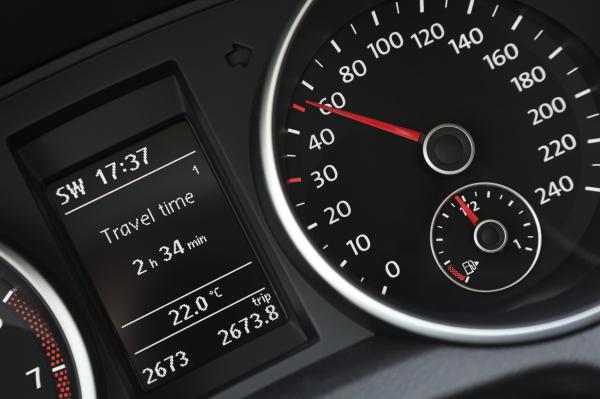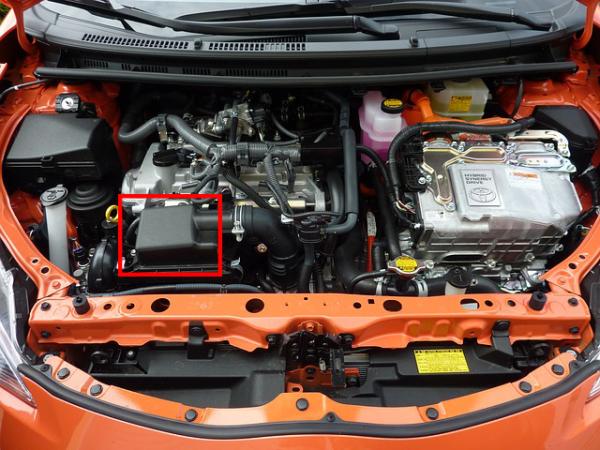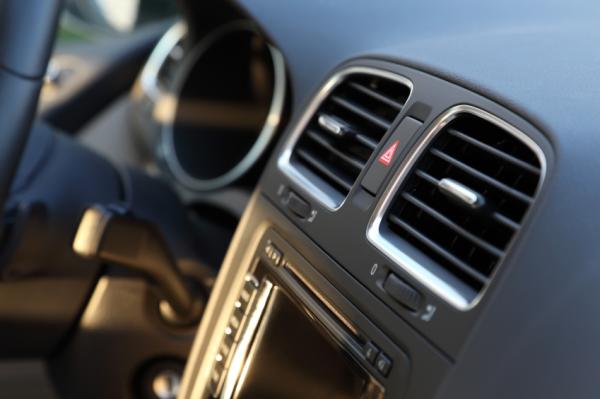
Is your car losing power? In most cases, a loss of engine power is related to a mechanical failure in your vehicle. However, a loss of power may also be due to an external factor such as high temperatures or other climate issues. Working out why your car is not always easy, so we should consider all the possibilities. We also need to look at the circumstances when your car loses power to help determine the problem.
If your car loses power while you are driving, there may be a variety of different reasons why. In this oneHOWTO article we'll help you diagnose your car's problem yourself, offering a number of possible answers to explain why does your car loses power and giving you some tips on how to fix the problem.
Fuel injector problems
Your car may lose power if an injector has poor contact with the internal combustion engine. If this is the cause of the problem, you may also notice an exaggerated vibration in the motor. The fuel injector is an appropriate name for a car part which injects fuel into the engine. The fuel needs to travel from the tank into the cylinder where it is burned and the energy it creates is used to propel the car.
Fuel passes through the injector, but so too does dirt and debris which may get caught up in the engine system. As a result, the fuel injectors will often become clogged and dirty. A dirty fuel injector is one of the most common reasons for a car losing power when accelerating. When we accelerate, we send fuel to the engine. If the injector is clogged, the reaction may be that the car loses power.
We recommend that you maintain these parts well. It can be done by a mechanic, but you can also learn how to do it by yourself by reading our article how to clean a fuel injector at home. If the fuel injector is damaged for another reason, then they will need replaced. This can be done at home, but it's a bit tricky, so go to a mechanic if you don't have much experience.

If your engine has a turbocharger
If your car's model is among those which have a turbo engine or turbocharger, something that is increasingly common, you may find that this element is the reason why your car loses power when you drive. Turbochargers work by pushing extra compressed air into the engine which, in turn, causes greater acceleration.
It may be that a tube connector of the turbo engine is damaged, it is simply dirty or it has been poorly adjusted. This fault can also occur because the valve that regulates the turbo does not work properly. Here you can learn how to maintain a turbo diesel engine. Again, this is a problem which will make your car lose power when accelerating as there may not be enough fuel received in the cylinder and he car losing power is the result.
Turbochargers are very specific and will need a professional to take a look and diagnose the problem. However, since turbochargers need oil to function, check the oil levels as a precaution.

AC system draining power
If you turn on the air conditioning system when you drive, your car will likely lose power. You will notice this especially when you go on a long road trip or use a city car on open roads. If you are overtaking while going uphill and have the air conditioning on, you will notice how the engine can feel like it is losing power.
There is no need to worry. The car's engine is used to propel the car forward, but it only provides power to other functions in the car. Be aware that the air conditioning system will use of some of this power and, therefore, take it away from the driving mechanism. It shouldn't matter whether the car is accelerating or driving normally.
Here you can learn how to recharge it at home.

Cooling system draining power
The cause of your car's power loss could also be an overloaded internal combustion engine cooling system. The cooling system involves various elements, including the radiator and even the coolant. While it might sound like the wrong way round, the radiator is part of the engine's cooling system. If there is a problem such as a blockage, then the engine may overheat. If the engine overheats, then the fans need to work harder and power is therefore taken away from the drive.
The problem doesn't necessarily have to be a blockage. You may have run out of coolant and it needs replaced or you might simply be driving in very high temperatures. In extreme conditions generated by very high external temperatures, the car's fan has to act at peak performance. This takes away power to the rest of the engine equivalent to about 2 hp.
Here you can learn more about why is my car thermostat going up and down.

Error with the ECU (electronic control unit)
For cars with an ECU (electronic control unit), an error in this embedded system can cause the car to lose power. In some cases, the car may stop completely.
This fault, which is not easy to solve, often happens because the ECU system detects a mechanical error in the car that doesn't actually exist. Therefore, the ECU gives the command to lose power or stop to the engine in order to prevent an accident although there is no reason to do so.
In most cases, ECU failures get fixed on their own and you will be able to use your car again after half an hour without a problem. However, you should go to a professional to repair the unit so that it does not fail again.

Catalytic converter blockage
If your car loses power when you accelerate, or if it accelerates more slowly than usual, it could be that your catalytic converter may be blocking gases and thus not allowing your car to rev like it should. If you think this is the case, you can learn more about why your car doesn't accelerate properly.
To check if your car is losing power because of the catalytic converter, you'll only need to pay attention for a rattle-like sound when you tap the catalytic converter lightly with a hammer or similar. The blockage in the catalytic converter can be from various places such as dirt in the the fuel line or even parts of the ceramic converter itself coming off. Visit a mechanic if this is the case or clean the catalytic converter by yourself at home.
Fuel filter problems
The catalytic converter filters the exhaust system once the fuel has gone through the engine. However, there are various filters in an internal combustion engine. One of the other most important ones is the fuel filter. When the gas or diesel comes from the fuel tank, it needs to be filtered before it gets to the cylinders. If it doesn't, then it can cause the cylinders to become dirty which affects overall performance and can lead to damage.
A dirty fuel filter is also one of the most common reasons why a car is losing power when accelerating. When you press the accelerator, it sends more fuel through the filter and not as much can get through. Also, a dirty fuel filter is a common reason why your car is blowing white smoke and losing power. The dirt in the cylinders is burned along with the fuel and this causes smoke to come out of the exhaust.
When your car is losing power, it is important you look at other symptoms. By looking at the combinations of problems, we can help to isolate specific problems. It is also possible there are various issues with the engine at any given time.
Is your diesel engine losing power?
While many of the parts of a gas powered car and a diesel powered car are very similar, there are some specific differences which might be leading to a loss in power. Similar to a catalytic converter, diesel engines are required to have a diesel particulate filter (DPF) to filter out soot and other particles given off by the engine. If this is blocked or broken, it can be leading to problems with power. Read here if you are not even sure if your car has a DPF.
Fuel tank problems
Your fuel tank will need a breather pipe to allow air to get into the fuel tank. If this is blocked then it can create a vacuum in the fuel tank and make it more difficult for the fuel to go to the engine. It's easy to diagnose this fuel tank problem. Simply open up the fuel cap and listen. If you hear the sound of air rushing in, then you know there is not enough air getting into the fuel tank. The best time to do this just after you feel the car losing power when driving. If you do it when it has been stationary for a while, air might have gone back in.
Other reasons why your car is losing power
If as well as experiencing a loss of power you have noticed that your car jerks or makes a sound like an airplane, we have plenty of other articles to help diagnose your specific issue.
Do you know other reasons why a car loses power? Tell us in the comments section and help out other readers!
If you want to read similar articles to Why Does My Car Lose Power?, we recommend you visit our Car Maintenance and Repair category.